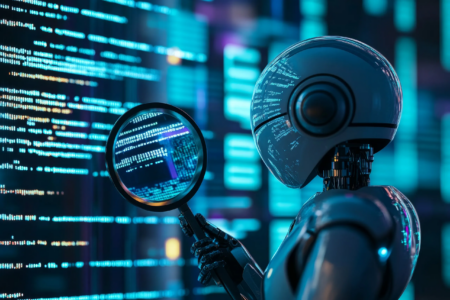In a striking shift that reflects growing global concerns, leading American companies are increasingly sounding the alarm over the impact of artificial intelligence on the future of jobs—signaling what many now call the beginning of a new era in workforce restructuring.
Shocking Statements from Industry Leaders About Artificial Intelligence
- In May, Dario Amodei, CEO of Anthropic, claimed that 50% of entry-level jobs in the U.S. may vanish within five years, potentially pushing unemployment to 20%.
- Marianne Lake, a JPMorgan executive, predicted a 10% reduction in workforce due to AI advancements.
- Andy Jassy, Amazon’s CEO, called the ongoing transformation “rare,” warning of an incoming wave of job cuts.
- Jim Farley of Ford went further, stating that AI will “literally replace half of all white-collar jobs in America.”
- At a recent tech conference, the CEO of ThredUp emphasized that the impact of AI on jobs will be “wider and deeper than most expect,” describing the scale of disruption as “massive.”

Artificial intelligence is transforming the workplace in powerful ways, let’s explore the ways that AI can be used at work!
10 impactful Uses of Artificial Intelligence at Work
1. Automating Repetitive Tasks
AI-powered tools like Robotic Process Automation (RPA) handle routine tasks such as data entry, invoice processing, and scheduling—freeing up employees for more strategic work.
2. Data Analysis & Insights
AI can sift through massive datasets to uncover trends, predict outcomes, and generate actionable insights for better decision-making in areas like finance, marketing, and operations.
3. Natural Language Processing (NLP)
From chatbots to sentiment analysis, NLP enables machines to understand and respond to human language—enhancing customer service and internal communications.
4. Personalized Marketing
AI helps tailor campaigns by analyzing customer behavior and preferences, delivering targeted ads, product recommendations, and personalized content.
5. Decision Support Systems
AI assists leaders by simulating scenarios, forecasting risks, and offering data-driven recommendations—especially useful in strategic planning and crisis management.
6. Recruitment & Talent Management
AI streamlines hiring by screening resumes, conducting initial interviews, and even predicting candidate success based on historical data and behavioral analysis.
7. Predictive Maintenance
In industries like manufacturing, AI monitors equipment performance and predicts failures before they happen—reducing downtime and saving costs.
8. Employee Training & Development
AI-powered platforms offer personalized learning paths, simulate real-world tasks, and track progress to help employees upskill efficiently.
9. Cybersecurity & Fraud Detection
AI detects anomalies in network traffic and financial transactions, helping prevent data breaches and fraudulent activities in real time.
10. Workflow Optimization
Artificial intelligence analyzes how teams work and suggests improvements—like reallocating resources, adjusting timelines, or automating bottlenecks to boost productivity.
Corporate Tone Shifts from Caution to Candid Warning
Once known for their cautious rhetoric around layoffs, major companies appear to be abandoning restraint as the technological pressure from AI intensifies.
While some tech leaders still argue these fears are overstated, the growing number of warnings hints at a dramatic reshaping of America’s job landscape.
Are We Ready for the Digital Shock?
As artificial intelligence continues to accelerate, the labor market faces unprecedented challenges.
Do businesses and workers have the tools to adapt to this profound shift?
And will governments be able to keep pace with the change to safeguard jobs and create new opportunities?








